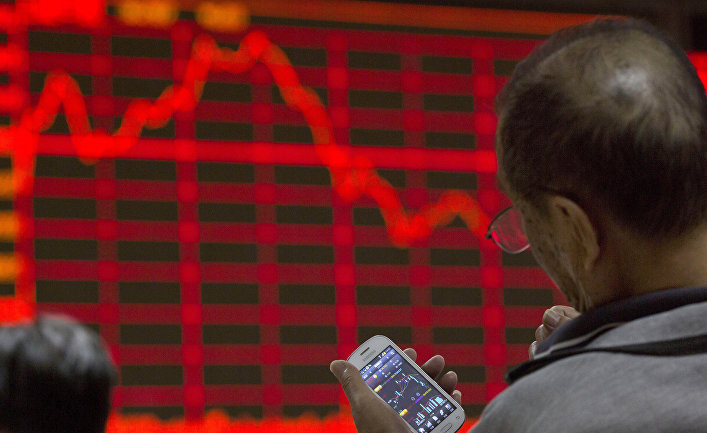At the close of trading on Monday the leading European stock indexes posted strong gains. The main stimulus for the rise in stock markets was the latest statistical data from the eurozone. At the same time, Europe's main stock exchange indices closed January with a decline.
By the end of the session the pan-European indicator Stoxx Europe 600 had risen by 0.72% to 468.88 points. Despite this, the stock exchange index reported its worst performance since autumn 2020 amid market worries about rising interest rates.

French key stock index CAC 40 jumped 0.48% to 6,999.2 points. Meanwhile, it lost 2.2% in the previous January.
The German DAX gained 0.99% to 15471.2 points. The index lost 2.6% in the previous month.
The UK FTSE 100 index fell 0.02% to 7,464.37 points on Monday. The stock index has gained 1.1% since the beginning of the month.
Shares of Irish airline Ryanair Holdings Plc, which jumped 3% the day before, were the top performers among securities of major European corporations. In the third quarter of 2021, Europe's largest low-cost carrier managed to reduce its net loss noticeably. However, analysts had predicted a more significant decline.
The leading outsiders of the European stock market on Monday were stocks of oil and gas companies, which slumped after a strong surge on the back of rising global prices for black gold. For example, shares of British multinational oil and gas company BP PLC fell by 0.7%, while French TotalEnergies SE lost 2%.
The focus of investors' attention on Monday was domestic statistics from Western European countries. Thus, according to preliminary information from Eurostat, the gross domestic product of 19 eurozone countries increased by 4.6% year-on-year in the fourth quarter of last year. Analysts had forecast an increase of 4.7%.
Consumer prices in Spain jumped by 6.1% last month compared with the same period in 2021. At the same time, the rate of inflation in the state slowed down from 6.6%, a December high of almost 30 years ago, amid falling energy costs. According to experts' preliminary scenarios, prices were expected to rise by 5.8% in January.
According to Destatis experts, annual inflation in Germany rose by 4.9% in January instead of the expected 4.3%. Moreover, the year-on-year consumer price level jumped by 5.1% against an expected 4.7%.
This week, European stock market participants will follow the outcome of the Bank of England and European Central Bank meetings. Analysts expect the European Central Bank to leave its key rate at zero, while the Bank of England will raise it from 0.25% to 0.5%.
 English
English 
 Русский
Русский Bahasa Indonesia
Bahasa Indonesia Bahasa Malay
Bahasa Malay ไทย
ไทย Español
Español Deutsch
Deutsch Български
Български Français
Français Tiếng Việt
Tiếng Việt 中文
中文 বাংলা
বাংলা हिन्दी
हिन्दी Čeština
Čeština Українська
Українська Română
Română

